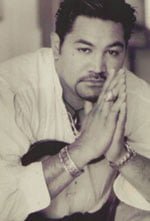The civilities that usually blanket statements coming from the NFL’s chief representatives, their players and former players, burned away quickly when discussion began about Esera Tuaolo, a former NFL player who recently came out to the world on HBO’s Real Sports with Bryant Gumbel. Sterling Sharpe, a former teammate of Tuaolo’s and current ESPN analyst, illuminated the severity of the situation when he said that Tuaolo “would have been eaten alive and he would have been hated for it” had he come out during his playing career. By saying this, Sharpe is only relating his first-hand knowledge of the homophobia that exists within the league.
The irony of this situation is that if 1 in every 10 people is homosexual, there are 5 to 6 homosexual players on every 53-player NFL roster, and roughly 85 in the league.
This means that Jeremy Shockey, star rookie tight end of the New York Giants, who said “if I knew there was a gay guy on my college football team, I probably wouldn’t, you know, stand for it,” has been playing with or against gay players in the pros, college, and high school.
These truths go against the stereotype that organized football is a stronghold of masculinity, free of “soft” gladiators, by revealing the homophobia within the NFL and our society.
Homophobia remains alive and well in the United States, but the fact that it is an unquestioned ideology within pee-wee, prep, college, and pro football makes it especially dangerous because of its potential to negatively influence the direction of one’s personal growth.
Having played in high school myself, I know first-hand that in battle–and make no mistake, football is a war– everything about you, especially your masculinity, will be questioned by teammates, coaches, opposing players and the situation itself.
These overt challenges mold a mindset principally opposed to the participation of homosexual football players because of the violence, ferocity, raw emotion, and pain that the game demands. The soul- baring and sheer nakedness that occurs during those battles make a player vulnerable–the fruit of one’s naked will in action can be seen through things as simple as a lone linebacker blowing up a ball-carrier or a guard crushing a defender with a trap block.
If that vulnerability must be sheathed, it can only be sheathed by a sometimes-homophobic paradigm that ultimately reveals who we are, as people and as a society.

